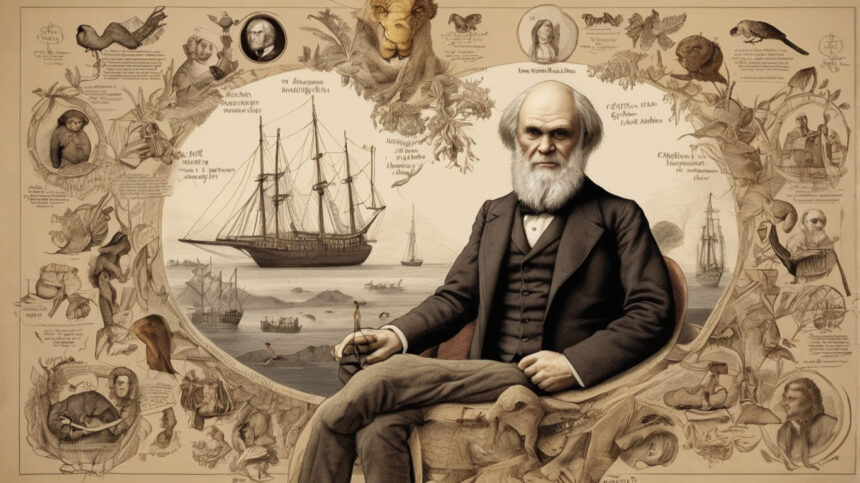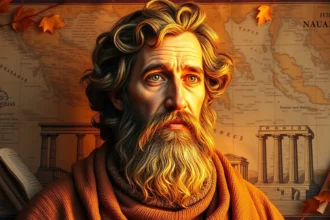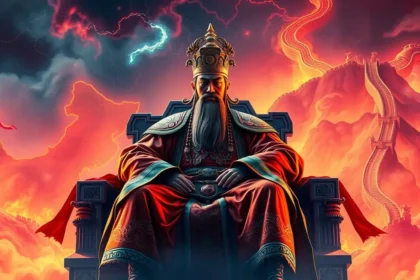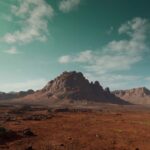Charles Darwin, a name synonymous with the theory of evolution, revolutionized the scientific world with his groundbreaking work on natural selection. This comprehensive account explores Darwin’s life from his formative years to his profound contributions to science, capturing the environment he lived in, his education, personal life, passions, and the journey that led to his epoch-making theories.
It is not the strongest of the species that survive, nor the most intelligent, but the one most responsive to change.
Charles Darwin
Early Life and Childhood
Charles Robert Darwin was born on February 12, 1809, in Shrewsbury, England, into a wealthy and intellectual family. His father, Dr. Robert Darwin, was a successful physician, and his grandfather, Erasmus Darwin, was a noted physician, inventor, and poet who had also speculated on evolution. This legacy of intellectual curiosity and affluence provided Charles with a fertile ground for exploration and learning.
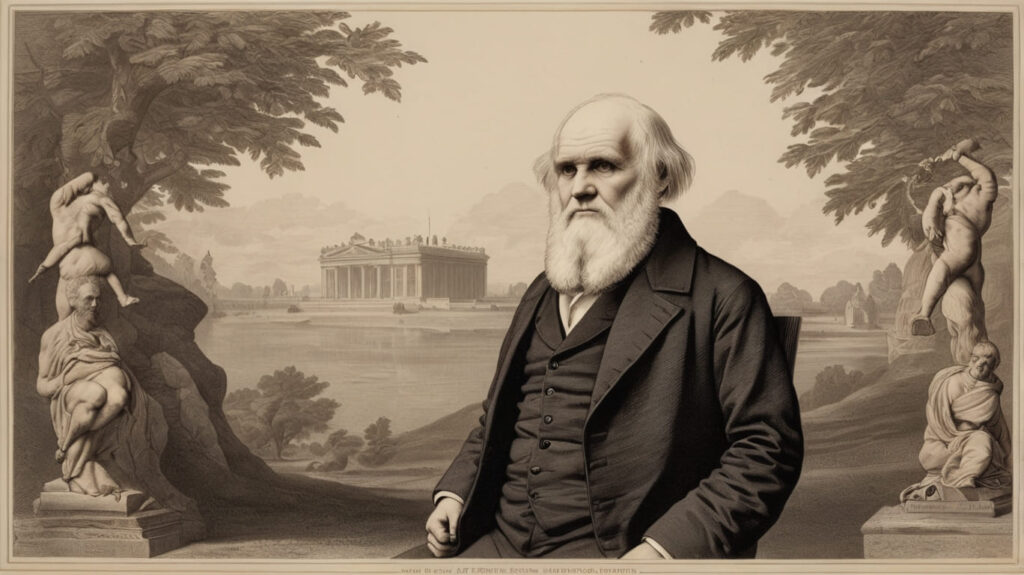
Darwin’s mother, Susannah Wedgwood, came from the famous Wedgwood pottery family. Unfortunately, she passed away when Darwin was just eight years old, leaving his father to play a dominant role in shaping his upbringing. Young Charles was a curious child with a keen interest in nature, spending hours collecting beetles, shells, and minerals, a passion that hinted at his future pursuits.
Education and Formative Influences
School Years
Darwin’s education began at a local day school in Shrewsbury and later at Shrewsbury School, a boarding institution renowned for its classical curriculum. However, Darwin showed little interest in the rigid classical studies and instead spent his time exploring the countryside, collecting specimens, and observing the natural world.
University Years
At the age of sixteen, Darwin enrolled at the University of Edinburgh to study medicine, following his father’s wishes. However, he found the lectures dull and was repelled by the brutality of surgical practices of the time. His lack of enthusiasm for medicine led him to explore other interests, particularly natural history.
At Edinburgh, Darwin joined the Plinian Society, a student group focused on natural sciences. He began attending zoology lectures and learned taxidermy from John Edmonstone, a freed black slave who shared his knowledge of tropical natural history. These experiences ignited Darwin’s interest in biology and set the stage for his future explorations.
Realizing that Darwin would not pursue medicine, his father suggested he study theology at Cambridge University. At Christ’s College, Darwin initially prepared to become a clergyman. Despite his theological studies, Darwin continued his passion for natural history, befriending noted botanist John Stevens Henslow. Henslow became a mentor, introducing Darwin to influential scientists and sparking his interest in scientific observation and research.
The Voyage of the HMS Beagle
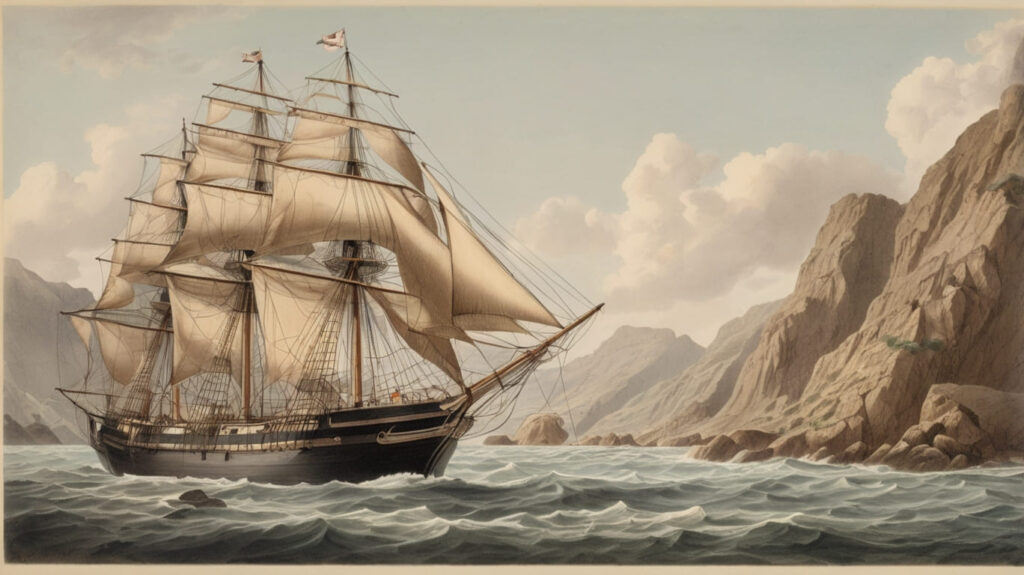
In 1831, Darwin received an invitation to join the HMS Beagle as a naturalist for a two-year surveying voyage that ultimately lasted five years. The expedition, led by Captain Robert FitzRoy, aimed to chart the South American coastline and collect geological and biological specimens.
The Impact of the Voyage
The journey proved transformative. Darwin meticulously documented observations of diverse ecosystems, geological formations, and fossil specimens. His time in the Galápagos Islands was particularly pivotal; he noticed subtle variations in species such as finches, tortoises, and mockingbirds on different islands, leading him to question the fixity of species.
Darwin’s collections from the voyage were vast, including thousands of specimens and extensive notes. These materials laid the foundation for his later work and positioned him as a prominent naturalist upon his return to England.
The Path to the Theory of Evolution
Post-Beagle Years
Returning to England in 1836, Darwin analyzed his findings with the support of leading scientists. He corresponded extensively with experts and meticulously studied his collections. During this time, he became influenced by Charles Lyell’s Principles of Geology, which emphasized gradual geological changes over immense timescales, and Thomas Malthus’s essay on population, which highlighted competition for resources.
Darwin began developing his theory of natural selection in 1838. He posited that organisms better adapted to their environment were more likely to survive and reproduce, passing on favorable traits to future generations.
The power of population is indefinitely greater than the power in the earth to produce subsistence for man.
Thomas Malthus
Publishing the Theory
Despite his groundbreaking insights, Darwin hesitated to publish his ideas, fearing backlash from religious and scientific communities. Instead, he focused on other works, including The Structure and Distribution of Coral Reefs and Geological Observations on South America. In 1858, however, he received a manuscript from Alfred Russel Wallace, an independent naturalist who had arrived at a similar theory. This prompted Darwin to present their joint findings to the Linnean Society.
In 1859, Darwin published On the Origin of Species by Means of Natural Selection. The book was a resounding success and sparked intense debates, but it firmly established Darwin’s reputation as one of the foremost scientists of his time.
Personal Life and Relationships
Marriage and Family
In 1839, Darwin married his cousin, Emma Wedgwood. Their marriage was a happy and intellectually stimulating union, though marked by tragedy as they lost three of their ten children in infancy or childhood. Emma was deeply religious, and her faith sometimes clashed with Darwin’s scientific pursuits. Nonetheless, their mutual respect and affection endured.
Darwin was a devoted father, often involving his children in experiments and observations. His home life at Down House in Kent was a blend of scientific inquiry and family warmth.
Lifestyle and Habits
Darwin led a disciplined and contemplative life. After settling at Down House in 1842, he maintained a routine of research, writing, and gardening. He was a keen observer of nature, often conducting experiments on plants and animals in his garden.
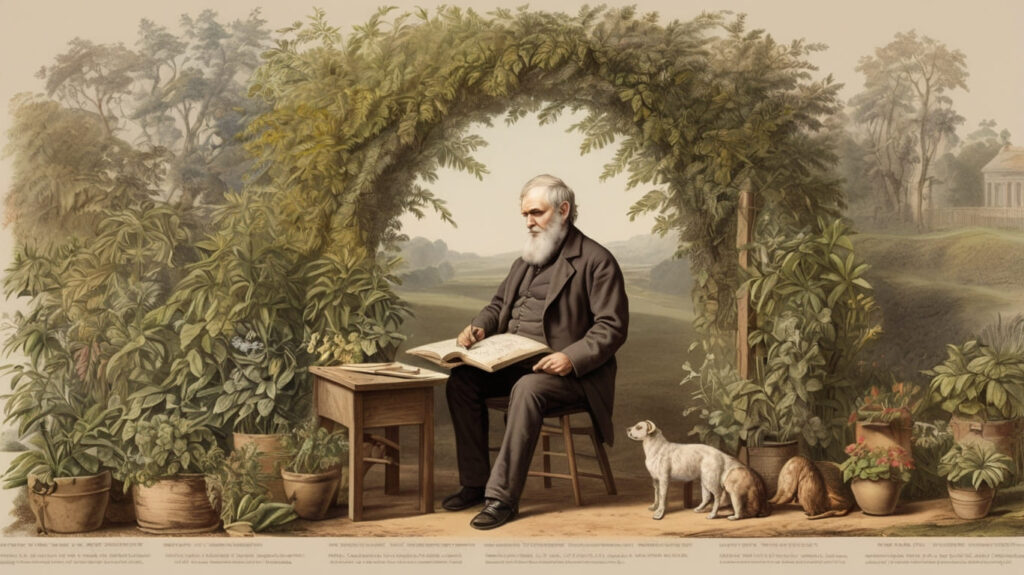
His health was a significant concern, with chronic illnesses affecting him for much of his adult life. Symptoms included fatigue, nausea, and gastrointestinal issues, likely exacerbated by stress. Despite this, Darwin remained prolific, publishing numerous works on botany, zoology, and geology.
Passions and Hobbies
Darwin’s passions extended beyond science. He enjoyed music, literature, and walking in nature. He was particularly fond of Shakespeare and enjoyed playing backgammon with his wife. These hobbies provided respite from his demanding intellectual pursuits.
Legacy and Death
Charles Darwin passed away on April 19, 1882, at the age of 73. He was buried in Westminster Abbey, an honor reflecting his immense contributions to science.
Darwin’s legacy endures in the fields of biology, geology, and beyond. His theory of evolution reshaped our understanding of life on Earth, influencing disciplines ranging from anthropology to ecology. He remains a towering figure in the history of science, celebrated for his curiosity, meticulous research, and willingness to challenge conventional wisdom.
Breaking Down the Barrier
Charles Darwin’s life was a testament to the power of observation, inquiry, and perseverance. From his early fascination with nature to his transformative voyage on the HMS Beagle and his groundbreaking scientific theories, Darwin’s journey was one of relentless exploration and intellectual courage. His work continues to inspire scientists and thinkers worldwide, affirming his status as one of history’s greatest minds.
Additional Resources
Here are additional resources related to the life, work, and legacy of Charles Darwin, providing a deeper dive into his scientific contributions and personal journey:
Books and Biographies
- Charles Darwin: Voyaging by Janet Browne
The first volume of a definitive biography covering Darwin’s early life and the HMS Beagle voyage.
Find it on Amazon
Explore on WorldCat - The Origin of Species by Charles Darwin
Darwin’s groundbreaking book on evolution and natural selection, available in annotated editions for modern readers.
More Details on Project Gutenberg
Buy on Penguin Classics - Darwin’s Sacred Cause by Adrian Desmond and James Moore
Explores how Darwin’s abolitionist beliefs influenced his scientific work and perspective on humanity.
Find it on AbeBooks - Charles Darwin: The Power of Place by Janet Browne
The second volume of Browne’s biography, focusing on Darwin’s later years and his impact on science and society.
More on Goodreads
Online Articles and Encyclopedias
- Darwin Correspondence Project
A treasure trove of letters written by and to Darwin, offering insights into his thoughts and collaborations.
Explore the Archive - Stanford Encyclopedia of Philosophy: Charles Darwin
A scholarly yet accessible overview of Darwin’s contributions to science and philosophy.
Read the Article - BBC History: Charles Darwin
A concise account of Darwin’s life, major discoveries, and historical context.
Visit BBC History - National Center for Science Education: Evolution Resources
A collection of educational materials on evolution, including Darwin’s role in shaping the field.
Explore the Resources
Free Online Texts and Audiobooks
- The Voyage of the Beagle by Charles Darwin
Darwin’s journal of his groundbreaking travels, available for free in multiple formats.
Read on Project Gutenberg
Listen on LibriVox - Autobiography of Charles Darwin
Darwin’s personal reflections on his life, family, and scientific journey.
Explore on Internet Archive
Documentaries and Videos
- Darwin’s Struggle: The Evolution of the Origin of Species
A BBC documentary chronicling Darwin’s journey to publish his revolutionary ideas.
Watch on BBC iPlayer - The Genius of Charles Darwin
A series by Richard Dawkins exploring Darwin’s life, work, and its impact on modern science.
Stream on CuriosityStream - The Voyage That Shook the World
A documentary retracing Darwin’s journey on the HMS Beagle.
More Details on IMDb
Academic Articles and Scholarly Resources
- JSTOR: Darwin’s Influence on Science
Access scholarly papers analyzing Darwin’s impact across various scientific disciplines.
Browse Articles on JSTOR - Academia.edu: Charles Darwin and Evolution
Download and explore academic papers on Darwin’s life and theories.
Search Papers on Academia.edu - Nature: Celebrating Darwin’s Legacy
A collection of articles from the prestigious journal Nature marking key anniversaries of Darwin’s work.
Read on Nature
These resources provide a rich variety of formats—books, documentaries, free texts, and academic articles—offering diverse ways to explore Darwin’s life and legacy. Let me know if you’d like assistance accessing any of these!
Must Read : The Genius of Aristotle


